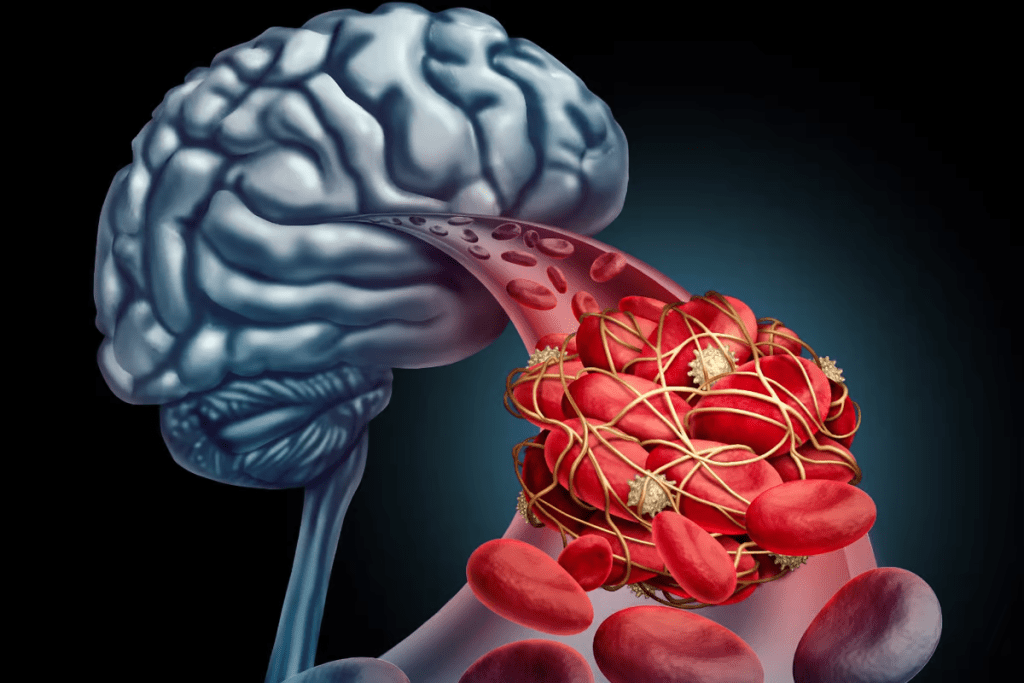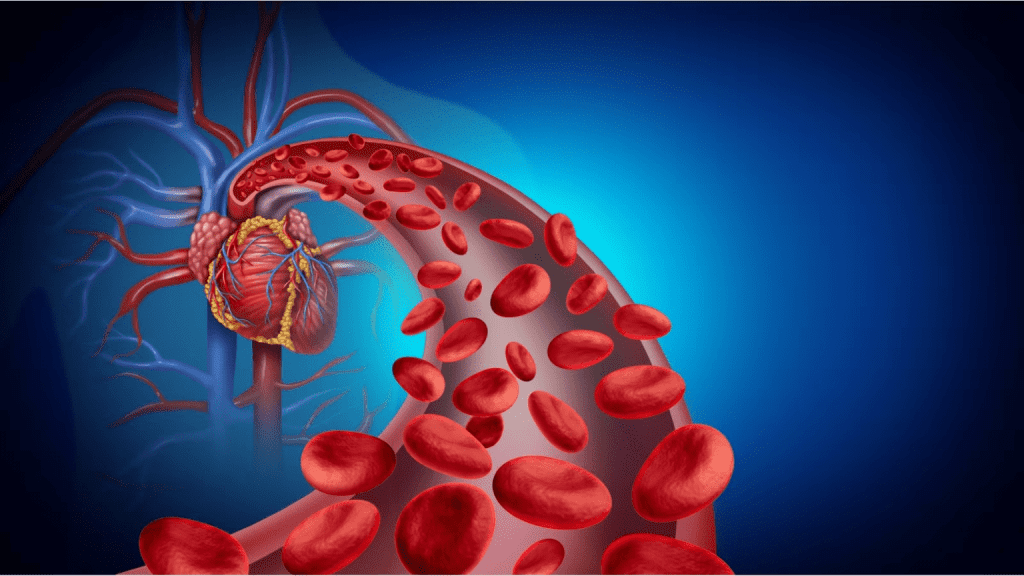Proper blood circulation is essential for a healthy body. It ensures that oxygen and vital nutrients reach every organ and tissue, allowing them to function at their best. But what happens when circulation isn’t up to par? Poor blood flow can lead to various health issues, some of which can be severe if left untreated. By recognizing the early warning signs of poor blood circulation, you can take steps to improve it and safeguard your well-being. In this article, we’ll explore the top 10 symptoms that could indicate circulation problems and what you can do about it.
Why Is Good Circulation Important?
Healthy circulation is critical for delivering oxygen and nutrients to your cells and removing waste products from your body. Without proper blood flow, your organs and muscles can’t perform optimally, leading to a cascade of health complications. Circulation issues often start small, but if ignored, they can progress into serious conditions such as heart disease, diabetes, or even nerve damage. Understanding the signs of poor circulation is your first step in preventing these issues.

1. Numbness and Tingling in Extremities
Ever felt your fingers or toes go numb or experience a tingling sensation? This is one of the most common signs of poor blood circulation. When blood flow is restricted, your extremities don’t receive enough oxygen and nutrients, leading to that characteristic “pins and needles” feeling.
- What to Watch For: Persistent numbness or tingling, especially in your hands, fingers, feet, or toes, can be a warning that your blood flow is compromised.
2. Cold Hands and Feet
Cold hands and feet are a classic sign that your circulation might be lacking. When blood isn’t reaching your extremities efficiently, they tend to feel cold, even in warm environments. This can be particularly noticeable during colder months when the blood vessels constrict, further reducing blood flow.
- What to Watch For: Constantly chilly fingers and toes that don’t warm up easily could point to circulation issues.
3. Swelling in Lower Extremities
Swelling, especially in the legs, ankles, and feet, can signal poor circulation. When blood flow is restricted, fluids can accumulate in your tissues, leading to a condition called edema. This happens because the blood isn’t moving effectively back up to your heart, causing a buildup in the lower parts of your body.
- What to Watch For: Persistent puffiness, particularly after sitting or standing for extended periods, may indicate circulation problems.
4. Fatigue and General Lethargy
Do you feel tired all the time, even with adequate rest? Poor circulation might be to blame. When your muscles and organs don’t get enough oxygen, your energy levels can take a nosedive, leaving you feeling exhausted and sluggish.
- What to Watch For: Unexplained fatigue or tiredness that doesn’t improve with sleep or rest could be a symptom of impaired blood flow.
5. Discoloration of the Skin
Another visible sign of poor circulation is changes in your skin color. A bluish or purplish tint, especially around your fingertips and toes, could mean that your blood isn’t delivering enough oxygen. This discoloration, known as cyanosis, can occur in other areas as well, particularly when circulation is limited.
- What to Watch For: Skin that appears unusually pale, blue, or even reddish can be a sign of insufficient blood flow.
6. Varicose Veins and Spider Veins
Varicose veins occur when blood pools in your veins due to poor circulation, causing them to become enlarged and twisted. This is most common in the legs, where veins have to work against gravity to return blood to the heart. Varicose veins are not only unsightly but can also cause discomfort and pain.
- What to Watch For: Bulging, twisted veins that are visible just under the skin, often accompanied by heaviness or aching in the legs.
7. Slow-Healing Wounds or Sores
If you’ve noticed that small cuts or sores take longer than usual to heal, poor circulation may be the cause. Proper blood flow is essential for wound healing, as it brings the necessary nutrients and oxygen to the site of the injury. Reduced circulation can delay this process, making you more susceptible to infections.
- What to Watch For: Minor injuries that don’t heal within a typical timeframe or recurring sores on your feet and legs.
8. Cognitive Issues and Difficulty Concentrating

Your brain relies on a steady supply of oxygen-rich blood to function properly. When circulation is poor, it can affect mental clarity, memory, and concentration. Over time, inadequate blood flow to the brain can contribute to cognitive decline and even increase the risk of conditions like dementia.
- What to Watch For: Memory problems, brain fog, and difficulty focusing on tasks could be linked to reduced blood flow to the brain.
9. Digestive Problems and Loss of Appetite
Poor circulation can impact your digestive system, leading to issues like bloating, cramps, and stomach discomfort. When blood flow to the digestive organs is restricted, they struggle to function optimally, which can result in reduced appetite and slowed digestion.
- What to Watch For: Frequent digestive complaints, a feeling of fullness, or a decrease in appetite without an apparent cause.
10. Muscle Cramps and Leg Pain
Experiencing muscle cramps or pain in your legs, particularly after physical activity, can be a red flag for circulation problems. When your muscles don’t get adequate blood flow, they can become oxygen-starved, leading to cramps and pain. This condition is often referred to as claudication and is most commonly experienced in the calves.
- What to Watch For: Sudden cramps or a sensation of tightness in your legs, especially during exercise, could indicate circulation issues.
How to Improve Blood Circulation

If you’ve noticed any of these warning signs, don’t ignore them. Improving your circulation is essential for long-term health and can often be achieved through lifestyle changes:
- Stay Active: Regular exercise helps keep your blood flowing smoothly. Even a brisk daily walk can make a difference.
- Eat a Healthy Diet: Focus on foods that promote heart health, like fruits, vegetables, whole grains, and lean proteins.
- Stay Hydrated: Proper hydration supports blood flow and prevents your blood from thickening, which can slow circulation.
- Manage Stress: Chronic stress can constrict blood vessels. Incorporating relaxation techniques like yoga or meditation can improve circulation.
- Avoid Smoking: Smoking damages your blood vessels, making it harder for blood to circulate. If you smoke, consider quitting to boost your circulation and overall health.
Conclusion: Don’t Ignore the Signs of Poor Circulation
Your body gives you signals when something’s wrong, and recognizing the signs of poor blood circulation can make all the difference. If you experience any of the symptoms outlined in this article, take action to improve your blood flow. Lifestyle changes, a balanced diet, and regular physical activity can help, but don’t hesitate to consult a healthcare provider if these symptoms persist. Remember, good circulation is essential for keeping your body and mind healthy, so take steps today to support it!





